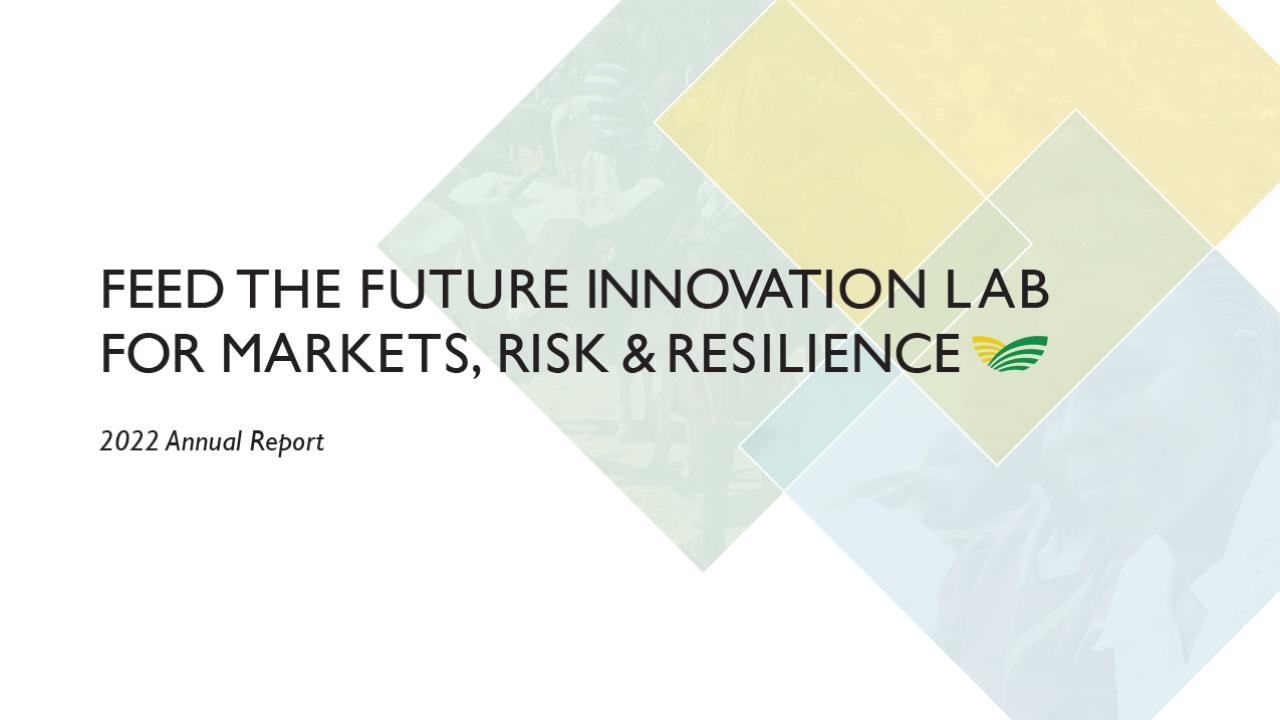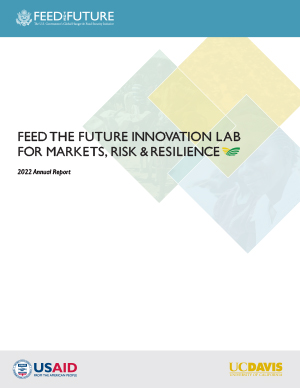
The most vulnerable rural communities face a compounding of new and ongoing crises. These include continuing difficulties created by the COVID-19 pandemic and new crises such as war in Ukraine, conflict and extreme drought in East Africa and flooding across Pakistan and Nigeria. At the center of each of these crises is food. The World Food Programme reports that the number of people experiencing acute food insecurity has increased from 135 million just two years ago to 345 million today.[1]

The Feed the Future Innovation Lab for Markets, Risk & Resilience at UC Davis was established to generate field-tested evidence on how to meet many of these challenges. Through our network of principal investigators at research institutions across the globe, we conduct research on how to strengthen food security and resilience at all levels, from systems to individual households and families.
In 2022 we made considerable progress on our 29 awarded projects across 12 countries. These projects include impact evaluations of active development programs as well as research that tests new approaches for strengthening food security and resilience. These include a new project that builds a technical definition and measure of resilience in the context of poverty traps and the true complexities facing rural households. These also include two seed grants that have been awarded full funding, one in Ethiopia and one in Ghana, both of which are testing innovations in agricultural index insurance. We reported results from two projects providing insights on how livelihood-building programs for women can generate resilience to hardships that include drought and the COVID-19 pandemic.
We have expanded our collaborations across the development community while ensuring that the evidence we generate reaches stakeholders who can readily incorporate it into their work. Through publications and participation in high-level partnerships we have provided critical thought leadership in the areas of risk management, technology adoption, market development and resilience.
This year we significantly expanded our efforts to strengthen development research capacity at African research institutions. Our principal investigators funded through our Feed the Future ALL-IN collaboration led workshops and trainings for colleagues, research assistants, research partners and government stakeholders. We also launched the ALL-IN Research Network (ARN), a new collaborative initiative that has become an active hub for currently 135 African development researchers who take part in mentoring, training and peer working groups.
The many food-related challenges this past year require broad collective efforts like those shown through increased investments through Feed the Future and many others in recognition of how these many crises impact people’s lives today and well into the future. High-quality, rigorous research plays a valuable role in putting a more financially stable, food-secure future within reach for all.
[1] World Food Programme. 2022. “A Global Food Crisis.”
